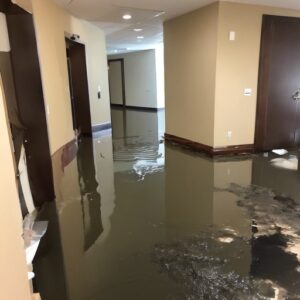San Jose, California, nestled in the heart of Silicon Valley, is a bustling metropolis known for its innovation, technology, and diverse culture. Amidst the vibrant cityscape lies a thriving hospitality industry, with hotels catering to business travelers, tourists, and locals alike. In this competitive landscape, hotels in San Jose must continuously adapt to meet the evolving needs of their guests while also prioritizing sustainability and energy efficiency. One essential upgrade that can significantly benefit hotels in San Jose is the installation of heat pumps. In this article, we’ll delve into five compelling reasons why heat pump installation is essential for hotels in San Jose, CA.
Energy Efficiency and Cost Savings
One of the primary benefits of heat pumps for hotels in San Jose is their exceptional energy efficiency. Heat pumps utilize advanced technology to extract heat from the air, ground, or water, making them incredibly efficient heating and cooling systems. In a city like San Jose, where temperatures can vary significantly throughout the year, efficient climate control is crucial for guest comfort and satisfaction.
By investing in heat pump installation, hotels can significantly reduce their energy consumption and utility costs. Unlike traditional heating and cooling systems that rely on fossil fuels, heat pumps operate using electricity, which can be generated from renewable sources. This not only lowers operational expenses but also aligns with the growing demand for sustainable practices within the hospitality industry.
Enhanced Guest Comfort
Guest comfort is paramount in the hospitality sector, and maintaining optimal indoor temperatures plays a significant role in ensuring a pleasant experience for visitors. San Jose experiences hot summers and relatively mild winters, making effective climate control essential year-round.
Heat pumps offer precise temperature regulation, allowing hotels to maintain comfortable indoor environments regardless of external weather conditions. Whether guests are seeking refuge from the scorching heat or looking to warm up during cooler evenings, heat pumps provide consistent heating and cooling performance, ensuring a comfortable stay for all patrons.
Environmental Sustainability
With increasing awareness of environmental issues, travelers are actively seeking accommodations that prioritize sustainability and eco-friendliness. Hotels in San Jose can differentiate themselves by demonstrating a commitment to green practices, and heat pump installation is a significant step in this direction.
Heat pumps have a lower carbon footprint compared to traditional heating and cooling systems, as they utilize renewable energy sources and produce fewer greenhouse gas emissions. By transitioning to heat pumps, hotels can reduce their environmental impact while appealing to environmentally conscious guests who value sustainability.
Improved Indoor Air Quality
Indoor air quality is a crucial factor in guest comfort and well-being, particularly in densely populated urban areas like San Jose. Poor air quality can lead to health issues and discomfort, affecting the overall guest experience and hotel reputation.
Heat pumps play a key role in maintaining excellent indoor air quality by continuously circulating and filtering the air. These systems incorporate advanced filtration mechanisms that capture airborne pollutants, dust, and allergens, resulting in cleaner and healthier indoor environments. By investing in heat pump installation, hotels can ensure that guests enjoy fresh, purified air throughout their stay.
Year-Round Versatility
San Jose experiences a Mediterranean climate, characterized by mild, wet winters and hot, dry summers. Hotels in the region must be equipped to handle temperature fluctuations throughout the year, providing guests with comfortable accommodations regardless of the season.
Heat pumps offer unparalleled versatility, capable of providing both heating and cooling functions with exceptional efficiency. Whether it’s combating the summer heat or warming up chilly winter nights, heat pumps can seamlessly adjust to meet the changing needs of guests, ensuring optimal comfort and satisfaction throughout the year.
Conclusion
In conclusion, heat pump installation San Jose CA is indispensable for hotels offering a multitude of benefits ranging from energy efficiency and cost savings to enhanced guest comfort and environmental sustainability. By embracing this advanced heating and cooling technology, hotels can position themselves as leaders in the hospitality industry, attracting eco-conscious travelers and providing unparalleled comfort and convenience to guests. As the hospitality landscape continues to evolve, investing in heat pumps is not just a smart business decision but also a testament to a hotel’s commitment to innovation, sustainability, and guest satisfaction in the vibrant city of San Jose.



